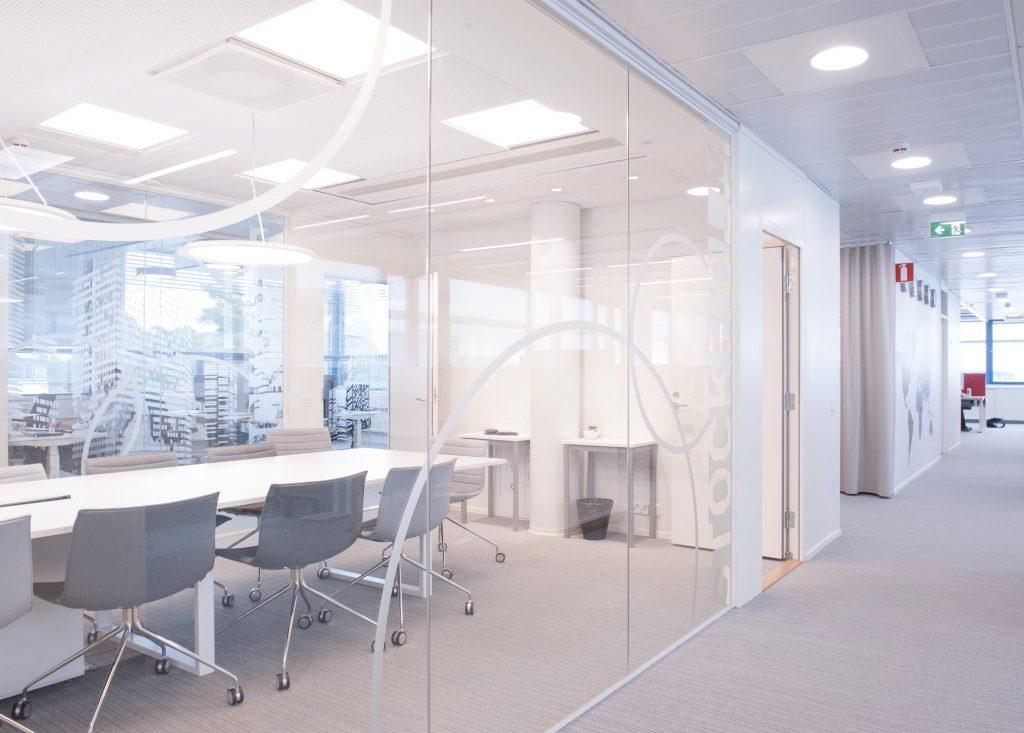The importance of intelligent lighting controls in supporting hygiene
Coronavirus has led us to approach life in different ways especially the spaces outside of our homes. For example, when going to a grocery store, we are now more conscious of touching door handles or picking up products that we might not need. As we adjust to a new reality, the need for technology that aids preventing touching will be in greater demand.
Intelligent Automated Lighting
When we often think that lighting automation brings comfort and energy efficiency, this is all true, but it also greatly benefits from a hygiene point of view and helps people to feel comfortable when returning to an office or any other space used by many occupiers. As a lighting controls specialist, we at Helvar have for years recommended using automated lighting control, as it brings benefits for comfort, wellbeing and energy savings.
Our own offices are equipped with intelligent lighting control that not only supports employee convenience but now more than ever, prevents the need to touch a wall panel to turn on the lights. Our lighting adapts to daylight changes, thus the need to dim lights is no longer required as the system cleverly does this all by itself as it responds to external light changes. Automation brings many benefits, but when further intelligence and integration to other building systems such as HVAC systems are implemented, the space becomes more automated and optimal for the people using it, again without needing to touch wall panels for any control.

Hygiene has always been an important element, but today hygiene has further been thrown into the limelight. Office environments are not the only place where touchless control is needed, the same applies to all spaces used by many occupiers. The healthcare industry especially will be under increasing pressure to implement measures that require limited touching. As we adjust to this new reality, it’s important that the world puts the safety of their people first, and lighting control is one element in considering the matter from a hygiene point of view.
A smarter solution for when manual adjustment is needed
Naturally, there are situations where automation alone cannot provide optimum lighting conditions. We are different and have different preferences. Different factors influence how much light is needed, for example, different tasks require different light settings, and age also influences how much light is needed. So, although automation is an excellent method to suit a generic audience and aid in supporting hygiene, there may be cases where tailored control is needed. In such cases, there could be better options that support hygiene than using a traditional wall panel.
In an office environment where personalised lighting control might be required, the ability to adjust the lighting for individual desks can be achieved using personal devices such as a laptop or mobile phone via Bluetooth based connectivity. Gesture-based options could also provide options where touching can be avoided. And, in spaces where a touch panel is required, for example, in hospital rooms, touch panels that are easy to keep clean and withstand frequent cleaning with liquid detergents would be the best alternative.
So, considering the points above it is clear to see how intelligent lighting controls can aid in supporting hygiene in spaces with many occupiers. As we adapt to a new reality, it is important to consider measures that aid in keeping people safe. After all, the safety and health of people should be seen as a priority and shouldn’t be taken for granted.

 WRITTEN BY SUSANNE LEHTINEN
WRITTEN BY SUSANNE LEHTINEN